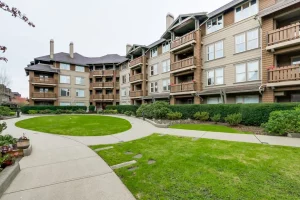Introduction
Owner failed to maintain an Exclusive use area? The body corporate retains the operational responsibility to maintain exclusive use areas, while the financial responsibility lies with the holder of the exclusive use right. Section 3(1)(c) of the STSM Act provides that every owner who is entitled to exclusive use of an area of common property must be required to pay an additional contribution to the body corporate’s administrative fund. This applies whether the area has been created in terms of section 27 of the Sectional Titles Act 95 of 1986 (the “ST Act”) or sections 10(7) and 10(8) of the Sectional Titles Schemes Management Act 8 of 2011 (the “STSM Act”).
Each year the body corporate must collect levies equal to its estimate of the specified costs in respect of every exclusive use area. The body corporate must collect its estimate of the costs of insurance and maintenance of the exclusive use area, including the provision of electricity and water. This provision does not apply if the rules that confer the rights also provide that the owners are responsible for these costs.
What happens if the exclusive use holder fails to maintain the area?
The Prescribed Management Rules (“PMRs”) provide a remedy for an owner who fails to maintain their section. In terms of PMR 31(2), If despite written demand by the body corporate, a member refuses or fails to carry out work in respect of that member’s section ordered by a competent authority as required by section 13(1)(b) of the STSM Act; or repair or maintain a section owned by that member in a state of good repair as required by section 13(1)(c) of the STSM Act and that failure threatens the stability of the common property, the safety of the building or otherwise materially prejudices the interests of the body corporate, its members or the occupiers of sections generally, the body corporate must remedy the member’s failure and recover the reasonable cost of doing so from that member; provided that in the case of an emergency, no demand or notice need be given to the member concerned.
When can the Body Corporate to intervene?
Previously PMR 70 contained in Annexure 8 of the Regulations made under the ST Act stated that if an owner fails to repair or maintain their section in a state of good repair as required by section 44(1)(c) of the ST Act; or fails to maintain adequately any improvement on any area of the common property allocated for their exclusive use, and if any such failure persists for a period of thirty (30) days after the giving of written notice by the trustees or the managing agent to repair or to maintain, as the case may be, the body corporate is entitled to remedy the owner’s failure and to recover, subject to section 37(1)(b) of the ST Act, the reasonable cost of doing so from such owner.
Now PMR 31(2) gives the trustees a way of enforcing the duties set out in sections 13(1)(b) and 13(1)(c) of the STSM Act. This is one of the few instances in which a rule specifically authorises the body corporate to intervene, without the authority of a court order, indicating the high priority the legislature has accorded the adequate maintenance of sections and common property in a scheme.

There is a distinction between an owner’s duties in regard to sections and those in regard to exclusive use areas
There is a distinction between an owner’s duties in regard to sections and those in regard to exclusive use areas. Whereas under section 13(1)(c) of the STSM Act, an owner must repair and maintain their section in a state of good repair, adequate maintenance of an exclusive use area is, in terms of this section, to keep that area neat and clean.
If an exclusive use area requires repairs or maintenance that go beyond keeping it clean and neat, the body corporate cannot demand that the owner who holds rights to that area must carry out the work. As with any other area of common property, the body corporate is obliged to carry out the work in terms of section 3(1)(l) of the STSM Act, but when those works are on an exclusive use area, the body corporate must recover the costs from the owner concerned in terms of the proviso to section 3(1)(c) of the STSM Act, or in terms of the rule.
The trustees should not exercise the body corporate’s powers under this rule unless to do so is clearly in the best interests of the body corporate, and the owner concerned has been given an adequate opportunity to present their case. This is especially the case if the lack of maintenance does not involve the common property. In these circumstances the trustees should ensure that the body corporate’s interests are prejudiced before they commit its resources to dealing with the issue.













